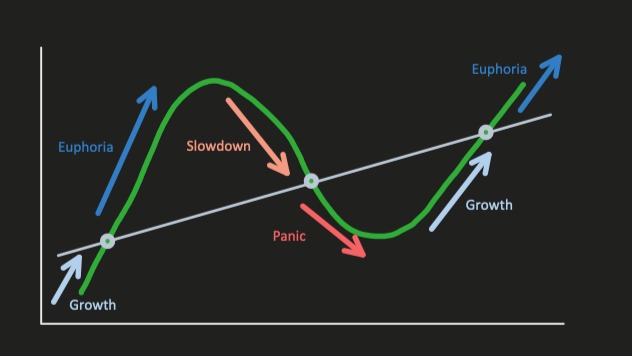The job market is competitive in most industries, and a career in life sciences is no exception. Simply having an impressive educational background is not always what recruiters are looking for; many other attributes could capture their attention and put one candidate ahead of the others. This helpful guide will provide insights into what makes a candidate stand out in the interview process.
Understanding the life sciences job market
Understanding the role and its implications in data science and life sciences policy whilst keeping up to date on the latest scientific developments could boost the recruiter’s rapport with the candidate. First impressions count and can be accelerated by demonstrating what lies beyond core skills and achievements.
The number of opportunities in life sciences recruitment is growing as research advances. There are many sectors to consider, and filling a role with a perfect match can be difficult. In this case, research is key to unlocking the full potential of roles within a chosen field.
Key skills and qualifications in demand
Technological advancements drive methodological shifts in research, and the need for skilled candidates with a thorough understanding of these areas is in demand, as evidenced in recent publications. A UK Life Sciences recruitment market report indicated that laboratory roles were heavily sought-after (1). Examples of areas thought to be particularly attractive are specialised skills in genomics, proteomics, bioinformatics, and biostatistics, essential for analysing and interpreting complex data (2).
The role of specialisation versus generalisation
Candidates seeking positions in specific fields should continue their education and demonstrate an understanding of their subject. That said, a more general approach to a wider range of topics is also appealing to employers looking to fill a role involving various life sciences elements.
Building a strong educational foundation
Beginning with a bachelor’s degree in a related field and continuing to Ph.D. level is often the recommended route for a successful career in life sciences. Relevant experience is also held in high regard and is very useful in building a network for professional development and thorough understanding and knowledge of a given field.
Essential degrees and certifications
The specifics of a role will define which qualifications and certifications are required. Professional recruiters specialising in life sciences, such as Panda, can help you stay ahead of the curve in this sector.
Continuing education and lifelong learning
Life sciences is a dynamic sector with ongoing discoveries and extensive research. Therefore, candidates in this industry need to commit to lifelong learning by keeping up to date with the latest breakthroughs, products, and treatments alongside additional qualifications.Career in life sciences
Leveraging internships and research opportunities
Many life sciences organisations offer entry-level candidates internships to improve their experience and knowledge with future career prospects in mind. Working alongside professionals and building a relationship with an organisation is beneficial for less experienced candidates seeking a life sciences position relevant to their qualifications.

Enhancing professional skills
Working as part of a team and demonstrating effective communication skills are important elements of successful application in the life sciences sector. Many positions involve working as part of a team of researchers or within a healthcare setting.
Crafting a personal brand
Employees and candidates should be mindful of their online presence. It is important to demonstrate professional conduct by showcasing appropriate behaviour on social media and networking sites. Reputation matters, both online and in person.
Developing a professional online presence
As online presence reflects a candidate’s potential behaviour in the workplace, providing a professional and precise online profile will showcase skills and demonstrate them to potential employers.
Effective CV and cover letter strategies
Researching an employer and adding tailored information to a cover letter can demonstrate a good understanding of the organisation. Candidates may also communicate why they believe they are perfect for the role and could contribute to the company’s mission.
Mastering the interview
Life sciences positions require critical thinking, problem-solving, and excellent communication skills. Demonstration of skills during an interview can show the employer that a candidate is exceptional.
Exploring non-traditional paths to a position in life sciences
Alongside the popular choices of clinical researcher and laboratory technician roles, several non-traditional ways exist to enter a life sciences career path. Speaking with a knowledgeable recruiter such as Panda International could open up unconventional recruitment avenues in life sciences.
Entrepreneurship and startups in life sciences
Several unmet needs in the life sciences industry require graduates to innovate through entrepreneurship. As a result, many graduates choose to start their businesses and develop products for the industry rather than apply for a position within an existing organisation.
Careers in life sciences policy and advocacy
Advocating for life sciences policy by pursuing a career as an analyst or advisor is another route for graduates. Some candidates may transition from their Ph.D. studies to an advisory role or switch from an existing position.
The growing field of data science in life sciences
Data science has assisted organisations with research, predicting future healthcare trends, and reducing expenses. Data science also provides quality control across the life sciences industry by identifying potential issues and helping to generate reliable research.
Connecting with potential employers
Whether a candidate is applying for a data science position or another specialist field in the life sciences sector, focusing on connecting with a potential employer is an easy way to stand out.
Get in touch
Panda is trusted by leading life sciences companies worldwide to provide the best talent with seamless candidate experiences. Get in touch with a professional recruiter to see how you can stand out from the crowd in the life sciences job market.






